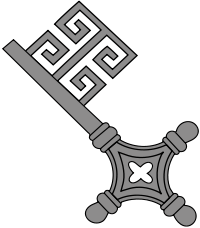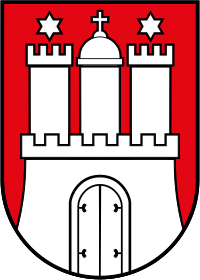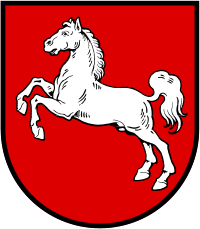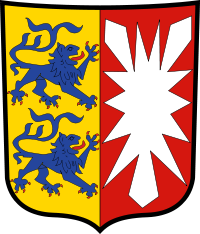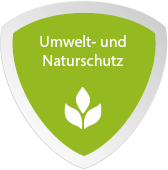Die nachfolgenden Inhalte stammen aus dem Kooperationsprogramm "North Sea" (Version 1.2).
Kurzbeschreibung
The action aims at reducing man-made threats to the marine ecosystem of the north sea, to mitigate conflicts of interest and foster sustainable blue growth.
Förderziel
Develop new methods for the long-term sustainable management of North Sea ecosystems.
Fördergegenstände
Demonstrations-, Modell- und Pilotvorhaben, Management, Verwaltung, Monitoring, Evaluierung, Produktentwicklung, Markteinführung, Vernetzung, Kooperation, Wissenstransfer
Zuwendungsempfänger
This list of beneficiaries is non-exhaustive. Please check if your particular organization is eligible or ask your National Contact Point.
- Public authorities and their agencies – National, regional, municipal and local administrations, regional development agencies, industrial parks and incubators, regional environmental agencies etc.
- National and European interest organisations and institutes.
- Knowledge institutions – Universities, colleges, research centres, technology centres, providers of professional training, schools, consultants, cluster managers etc.
- Enterprises – Including social enterprises and with a particular focus on small and medium sized enterprises.
- Civil society – Associations, NGOs, charities, community organisations etc.
Förderfähige Gebietskulisse
The programme area encompasses in Germany Bremen, Hamburg, Schleswig-Holstein as well as the NUTS-2-regions Braunschweig, Hannover, Lüneburg und Weser-Ems.
Further countries in the programme area are Dänemark, Norwegen as well as certain regions in the Niederlande, Belgien and the Vereingtes Königreich. A list of the regions can be found here: Link.
Art der Unterstützung
Non-repayable grant
Beschreibung
Actions are assigned to Programme-Part "Sustainable NSR".
There is a need to ensure balance between the many changing demands on the environment and work towards new agreements on how this balance can be maintained in the long-term. Differing threats on land and at sea will require different approaches and it will not be possible to address every aspect of the issues. Projects should be developed around the most pressing and serious threats to the ecosystems of the regions where there is potential for joint action or where regional coordination is needed to develop and implement new solutions.
The objective’s primary goal is to protect and restore the environment through:
- Early identification of potential threats.
- Identifying opportunities for better use of natural and maritime areas.
- Development of new methods and deployment of new technologies for environmental monitoring and management.
- Mainstreaming successful approaches.
Projects targeting the North Sea should aim to remove or mitigate major threats and pressures including the risk of accident, eutrophication, highly toxic pollutants and the urgent need to support fish stock recovery and preserve all parts of marine food chains. They should also explore the environmental limits of new and existing economic activities in the North Sea in order to provide a sound basis for sustainable Blue Growth. Land and fresh water environments are equally important and the programme will support exchange of knowledge to tackle threats facing sites across the North Sea Region. The most pressing of these include nitrogen and phosphorous overloads, biodiversity loss, chemical pollution as well as unsustainable resource extraction. There is also a need for cooperation on effective methods for restoring and preserving North Sea Region ecosystems where damage has occurred, for joint action on migratory species, and improved management of shared ecosystems. Solutions should be climate-proofed and should also preferably contribute to the overall adaptation strategies of the regions where target sites are located.
Transnational cooperation is needed especially in the areas of:
- Coordinating different user needs and planning the best locations for different activities.
- Action on pollutants.
- Action to preserve the breeding, spawning and feeding grounds of North Sea fish and animals.
Zentrale Zuwendungsvoraussetzungen
For projects working with the North Sea marine area, work must take account of activities in organisations such as OSPAR and the North Sea Commission’s Maritime Resources working group. DG MARE is also promoting the development of integrated maritime spatial planning approaches and sea basin strategies so projects will have to be coordinated with any such initiatives that are formally adopted within the programme’s lifetime.
Auswahlverfahren
Comprehensive Information on the application assessment process is available under the following Link.
Projektauswahlkriterien
Participation in the programme is not limited to specific types of organization/institution and will rather be decided based on:
- The ability of a partner to contribute to the outputs and results identified for the specific objective.
- The extent to which the partnership can influence development in the wider programme area (i.e. not just a local effect).
- The overall balance of the partnership in terms of geography, expertise and competence (are the participating organisations able to influence the theme?).
- The ability of the partners to live up to the formal requirements for the programme.
The criteria and guidelines for project the selection of projects can be found on pp. 78-79 of the cooperation programme. Additional information on speific types of projects e.g. testing and training, investment and pilot action, best practice, new models, strategies and so forth are available on pp. 22-24.
Laufzeit
Start der Maßnahme: 01.01.2014
Ende der Maßnahme: 31.12.2023

